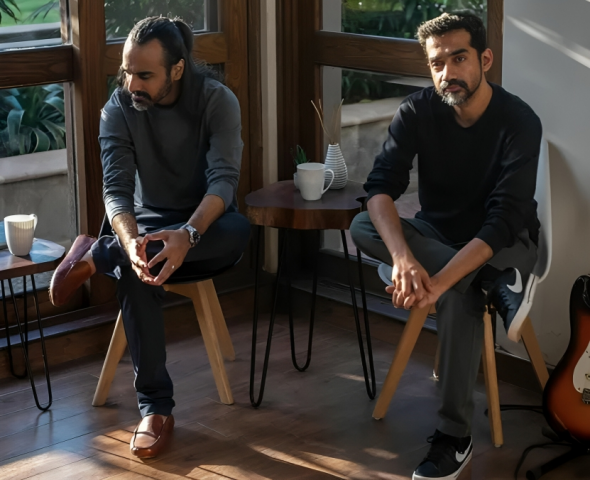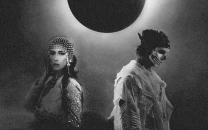‘Tere Naam’: Kaavish croons deep yearning with fine guitar bends, powerful vocals
Band’s latest track dropped on all streaming platforms on April 10

It is a good year for Kaavish fans: In January, the semi-classical band delighted everyone with the sudden announcement of their return to live music. Enter April and the band has come out with its latest offering, cleverly coinciding with the Meethi Eid.
Even better than the anticipation that preceded Tere Naam is realising that all the wait was worth it; clocking in it at 5-and-a-half minutes, Kaavish’s latest creates a soundscape that is both nostalgic and strikingly modern. From the very opening, a synth introduction sets a hauntingly beautiful stage before the guitar gently eases in, its presence growing alongside the onset of percussion.
To no surprise for those already intimate with the band’s discography, the vocal delivery in Tere Naam remains deliciously satisfying, employing a technique reminiscent of classical vibrato but with a distinctly unique execution. This style resonates deeply within the semi-classical genre, adding layers of emotional depth and texture to the piece.
Intrinsically classical, the singing style finds an unexpected but harmonious partnership with the modern musical arrangement. It is, perhaps, the meticulous production that weaves these elements into a cohesive whole, bridging gaps between eras and genres with finesse.
One of the song’s most compelling aspects is its use of contrast, especially evident in the hook where long, drawn-out vocal syllables with the aforementioned vibrato-like quality sail over a backdrop of rapidly moving guitar and piano lines. This interplay not only showcases the technical prowess of the musicians but also enhances the emotional gravitas of the track, embodying the song's themes of longing and desire.
Special mention is warranted for the guitar solo in Tere Naam. Short yet profoundly impactful, it tastefully propels the song into its next section without overshadowing the track's overall aesthetic. The bends in the solo mark a sultry crescendo in their own right, flaunting a delicate mastery over the instrument that adds a layer of allure and sophistication to the piece.
Closing the song is a whistle section that carries a hauntingly beautiful layer to the composition. Its sound, likened to wailing, evokes a sense of intense, burning longing, reminiscent of how Arcade Fire utilises the female vocals in some tracks on their album Funeral. This element plays a pivotal role in the song's outro, tying together the thematic elements with a poignant sense of yearning.
Have something to add to the story? Share it in the comments below.



















COMMENTS
Comments are moderated and generally will be posted if they are on-topic and not abusive.
For more information, please see our Comments FAQ